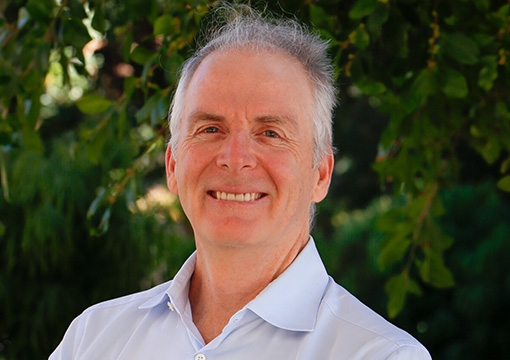Craig Hawker, professor in the UC Santa Barbara Materials Department and the Chemistry and Biochemistry Department, was announced as one of 120 new members from the United States and 30 from abroad to be elected into The National Academy of Sciences (NAS) in 2022. He was joined in this year’s cohort by Alison Butler, Distinguished Professor in chemistry and biochemistry, and geography professor Richard Church. Membership is offered in recognition of “distinguished and continuing achievements in original research.” Hawker’s election comes a little more than a year after he was also admitted into the National Academy of Engineering.
“Our UC Santa Barbara community is so honored and proud to congratulate Professors Butler, Church and Hawker,” said Chancellor Henry T. Yang. “Election by one’s peers to the National Academy of Sciences is a deeply meaningful recognition of years of hard work, pioneering research and unique contributions to science and our society. We are inspired by their achievements and delighted to see our distinguished colleagues honored in this way.”
“We in the College of Engineering are delighted to hear that Craig Hawker has received the important and well-deserved distinction of being elected into the National Academy of Sciences,” said Tresa Pollock, Alcoa Distinguished Professor of Materials and interim dean of the College of Engineering. “While Craig’s advances in synthetic polymer chemistry have had a tremendous positive impact on many thousands of lives and are what the NAS highlighted in his selection, we, his COE and UCSB peers, have long been inspired by his mentorship of young researchers, his reliability as a faculty colleague, his steady leadership in multiple roles, and his ongoing demonstration of the importance of interdisciplinary collaboration, which is so critical to the success of College of Engineering.”
“I am humbled to be elected as a fellow of the National Academy of Sciences, joining the ranks of so many exceptional scientists. It is a special recognition that I share with my talented students, collaborators, and mentors. Without their contributions, this would certainly not have been possible,” Hawker said, adding, “It is especially thrilling to be elected with my colleague, Alison Butler, illustrating the strength of chemistry and materials research at UC Santa Barbara. As global challenges emerge, our multidisciplinary scientific and engineering initiatives position UC Santa Barbara to be a world leader in providing solutions via translational research, innovation, and entrepreneurship.
Hawker, who is the Alan and Ruth Heeger Chair in Interdisciplinary Science and also serves as the co-director of the California NanoSystems Institute (CNSI) and the Dow Materials Institute, was cited by the NAS for “contributions to polymer chemistry through synthetic organic chemistry concepts and the advancement of molecular engineering principles.”
His research activities are focused on integrating cross-disciplinary studies to develop nanostructured polymeric materials having unique physical and mechanical properties for applications in biomaterials and energy research. His groundbreaking work has served as the basis for more than eighty U.S. patents and ten start-up companies. A number of those companies have developed drugs to improve the quality of life for people who suffer from chronic kidney disease (CKD). In 2020, he received the American Chemical Society’s Kathryn C. Hach Award for Entrepreneurial Success in recognition of his “innovative leadership in creating, developing, and commercializing revolutionary polymer-based therapeutics and personal-care products through multiple successful start-up companies.”
Hawker received a bachelor’s degree in chemistry from the University of Queensland, and his PhD from the University of Cambridge, after which he completed post-doctoral research at Cornell University. He joined UCSB in 2004 after a decade as a researcher with IBM.

The professor of materials and chemistry becomes a member of the National Academy of Sciences.
